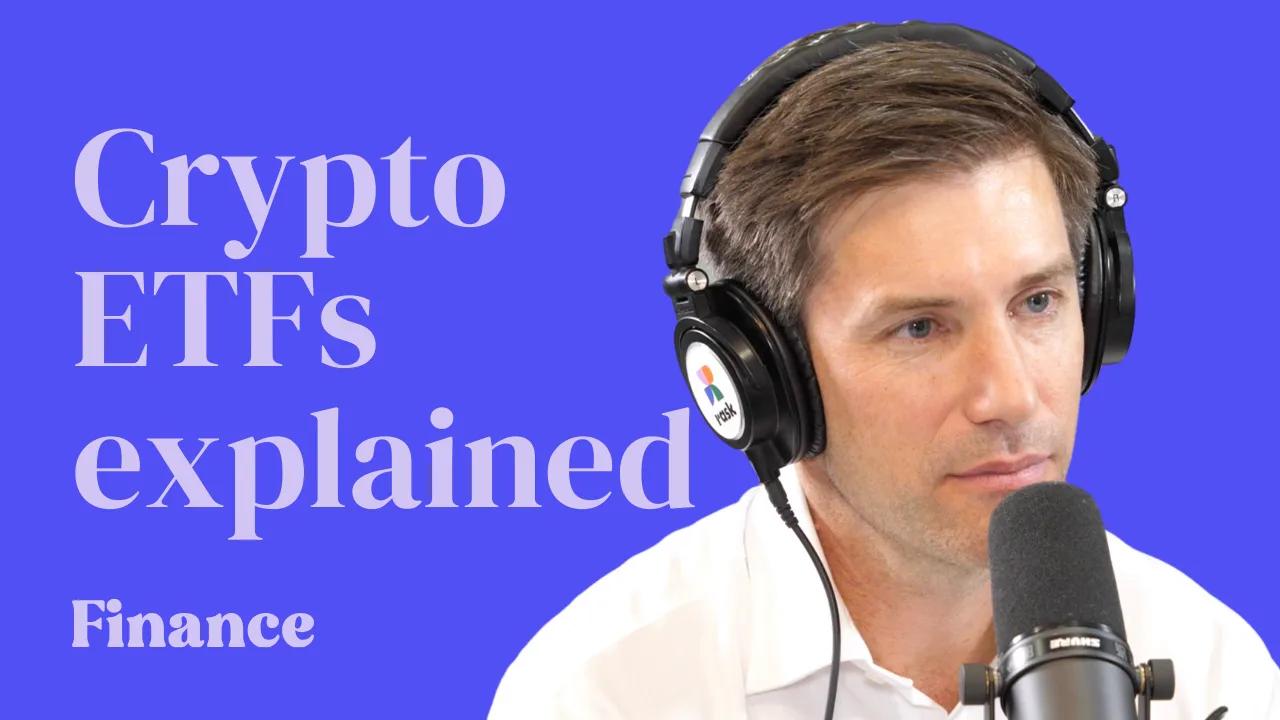This article comes from Rask Education (where you can ask our team questions) and it explains exactly what financial advice is, how to choose and find a financial adviser, the cost of financial advice and five questions you should ask your financial planner.
What is financial advice?
According to our regulator ASIC, personal advice is financial product advice given or directed to a person (including by electronic means) in circumstances where:
- the person giving or directing the advice has considered one or more of the client’s objectives, financial situation and needs (other than for the purposes of complying with the Anti-Money Laundering and Counter Terrorism Financing Act 2006, or regulations or rules under that Act); or
- a reasonable person might expect the person giving or directing the advice to have considered one or more of these matters
If a person is providing you with financial product advice, they are providing a financial service under the Corporations Act and (unless an exemption applies), must hold an AFS licence or act as the representative of an AFS licensee (ASIC RG175).
This means that if you want someone to look at your personal financial situation and give you advice on which investments to make, where to put your super and what insurances you need, you’ll need to get the help from a licensed financial adviser.
Related lesson: The difference between personal & general advice
What can a financial adviser help you with?
Financial advisers can help you with a range of areas, but here are a few significant ones:
- Working with you to identify your financial and life goals
- Assess your current financial situation and look at your assets and liabilities
- Work with you to prepare a financial plan that meets your needs and goals, including:
- Superannuation/SMSFs
- Tax
- Life and TPD insurance
- Investments (ETFs, shares, managed funds, bonds etc.)
- Help you implement your financial plan and provide regular reviews
- Refer you to other professionals for assistance with wills, estates, property, tax
Do you need a financial adviser?
This is a very common question, and the first thing you should be asking yourself is why you want to see a financial adviser and what you hope to achieve. This can help you look for an adviser that can fulfil your needs and objectives because many advisers choose to specialise in certain areas/demographics, including retirees, doctors, females, military members, first home buyers and young people.
As advisers generally need to examine your entire financial situation and provide you with a statement of advice (SOA), it can be quite costly to start with. If you’re trying to get out of debt, I’d recommend starting with a financial counsellor (who can provide you with a free and independent service).
Choosing a financial adviser
The number one thing to consider when choosing an adviser is making sure they’re appropriately qualified to provide you with personal advice. The Financial Planning Association of Australia (FPA) recommends looking for a financial planner who works for a firm that holds an Australian Financial Services License (AFSL) issued by the Australian Securities and Investments Commission (ASIC).
You should ask the adviser for a copy of their firm’s Financial Services Guide (FSG), which should include the following information:
- The name of the company
- The financial licence number (AFSL) – cross-check the number with the ASIC MoneySmart website
- The types of services they offer
- Remuneration and commission arrangements
- How to make complaints
ASIC requires the FSGs that are provided to retail clients (like you & me) have enough detail included so you could reasonably make a decision about whether to acquire financial services from that company. If you’ve still got questions or are not sure about points mentioned in the FSG, make sure you ask! It’ll probably only take a minute or two of a good adviser’s time to answer you and give you greater confidence over the service you’re receiving.
You should also have an introductory conversation with a few advisers before making a decision, as you need to be sure you’ll be able to work with them and feel comfortable asking questions and sharing your personal financial information.
The cost of financial advice
When it comes to financial advice, the fees vary greatly, and differ between fixed and percentage-based fee schedules. You’ll often pay for the initial SOA, implementation costs, yearly ongoing maintenance fees and additional fees if you want to make changes or have a major life event (e.g. marriage, divorce, kids, serious injury).
The AFR reported earlier this year that the median fees charged by a financial adviser increased 12 per cent to $2,800 per client per annum in 2019. Ask the adviser up-front for their schedule of fees and charges so you know exactly what’s expected and there are no nasty surprises!
Independent financial advice
Following the Banking Royal Commission, there has been a rising level of interest in independent financial advice. In Australia, there are a very strict set of parameters an adviser must meet to call themselves an independent financial adviser, and subsequently the list of those advisers is quite short.
For an adviser to qualify as a member of the Profession of Independent Financial Advisers (PIFA), they must meet the following three points:
- No ownership links or affiliations with product manufacturers.
- No commissions or incentive payments from product manufacturers.
- No asset-based fees
The PIFA recommends asking these five questions when meeting with an independent financial adviser.
- Are you independent under the law (and if not, why not)?
- Can you list what services are you offering to provide me?
- Do you charge fees in a way that is completely divorced from any transactions I enter into?
- Will you refund to me any commissions payable from products I buy?
- If I hire you ongoing, will you pause at 12 months to review what you’ve provided and plan out what we’re going to do together next year?
5 questions to ask your financial adviser
When you meet a financial adviser for the first time, think of it like a job interview. They’re assessing whether you’re the right fit for them and you should be doing the same as well. Here are five questions to throw at them during your initial meeting, to see if they’re a good fit for you.
- What are your qualifications, previous roles, experience with clients like me, testimonials and specific areas of interest?
- What is your approach/philosophy towards finance and investing? What type of investment products (e.g. ETFs, managed funds, index funds, property, REITs) do you typically recommend to clients?
- What are your various fees and charges for the SOA, implementation and ongoing support?
- Am I able to contact you with questions about my finances at any time or do I have to schedule a meeting?
- What education and ongoing support will you provide me, so I can feel more knowledgeable and confident about my financial future?








